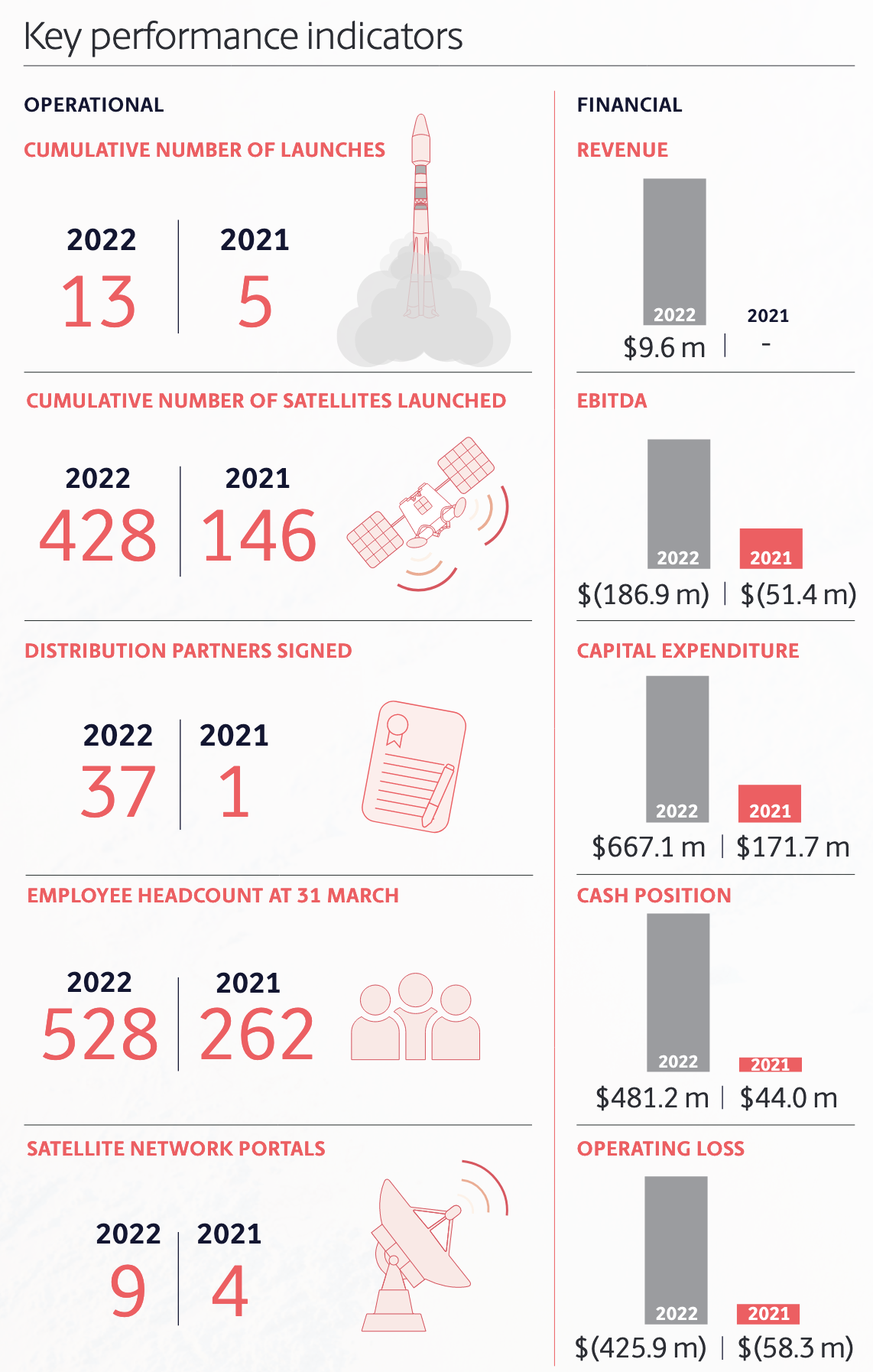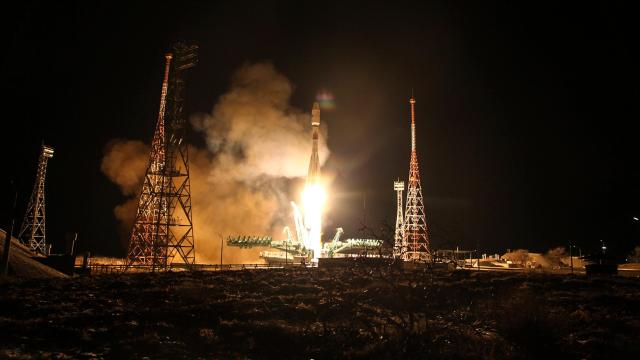British satellite company OneWeb is claiming to have suffered a major financial blow after having to cancel launches aboard Russian Soyuz rockets, and as the Russian space agency refuses to return 36 of the company’s satellites.
The turbulent end to the company’s contract caused OneWeb to lose $US229 ($318) million, as revealed in its annual financial report. The gigantic hit is the result of its satellites not being returned by Russia, and also the loss of pre-payments. Here’s the exact wording from OneWeb’s report:
The Group’s operating loss increased by 631% compared to the previous year after the impact of an impairment of $US229 ($318).2 million. The impairment arose from the Russia-Ukraine war resulting in the postponement of a planned launch on 4 March 2022, the associated postponement of subsequent scheduled launches, the loss of satellites not returned to the Group and the impairment of a portion of the Group’s prepaid launch insurance. The operating loss for the year excluding the effect of the impairment was $US196.7 ($273) million.
That said, the company did receive a $US44.1 ($61) million refund for future launches on Soyuz rockets that were called off, according to the report. Despite the hit, OneWeb says it “ended the year in a strong cash position” as the company “has received $US2.7 ($4) billion equity funding and has no external debt other than lease liabilities.” The company also received a tax credit to the tune of $US48 ($67) million, the result of WorldVu Satelites (the company’s subsidiary) migrating its tax residency from Jersey to the United Kingdom.
OneWeb is building out a satellite constellation in low Earth orbit that’s meant to provide internet connectivity across the world by the end of 2023. The company has successfully launched 428 satellites so far, with plans to launch a total of 648, according to OneWeb.

As part of its contract with Roscosmos, OneWeb was planning to launch 36 satellites aboard the space agency’s Soyuz rocket out of Kazakhstan in March. But things quickly deteriorated when the Russian space agency refused to launch the satellites unless OneWeb agreed to a list of demands, including that the British government divest its stake in the company. The London-based company refused Roscosmos’ conditions and the satellites were left in the space agency’s custody at a storage facility in Baiknour, Kazakhstan.
Russia has been losing plenty of its space industry partners following the country’s invasion of Ukraine. In retaliation to the international sanctions imposed against Russia due to the ongoing war, Roscosmos halted cooperation with Europe on Soyuz rocket launches from French Guiana and withdrew its 87 employees from the launch site. The European Space Agency was forced to forge new partnerships after relying on Russia’s Soyuz rockets for the past few years. In August, Northrop Grumman partnered with Firefly Aersospace to build a new first stage for Northrop’s Antares rocket, and also a medium-lift booster; the collaboration is meant to eliminate Northrop’s reliance on Russian rocket engines.
OneWeb now finds itself in a similar position. The company has already signed contracts with its internet rival SpaceX, and also India’s space agency ISRO, for the six remaining launches required for its first generation satellites, with plans to send them to orbit later this year.
OneWeb’s net loss for the year added up to a total of $US389.8 ($541) million, in addition to an EBITDA (earnings before interest, taxes, depreciation, and amortization) loss of $US186.9 ($259) million, and with a total stated revenue of just $US9.6 ($13) million. The company seemingly can’t catch a break, having already filed for bankruptcy earlier in 2020 and laying off 85% of its employees after failing to raise required funding due to the impact of covid-19. The recent loss can’t be good for the fate of its satellite constellation, but hopefully OneWeb can recover despite the geopolitical hiccup and its financial hardships.
More: Russia Now Wants to Build Its Own Space Station Before Leaving the ISS
